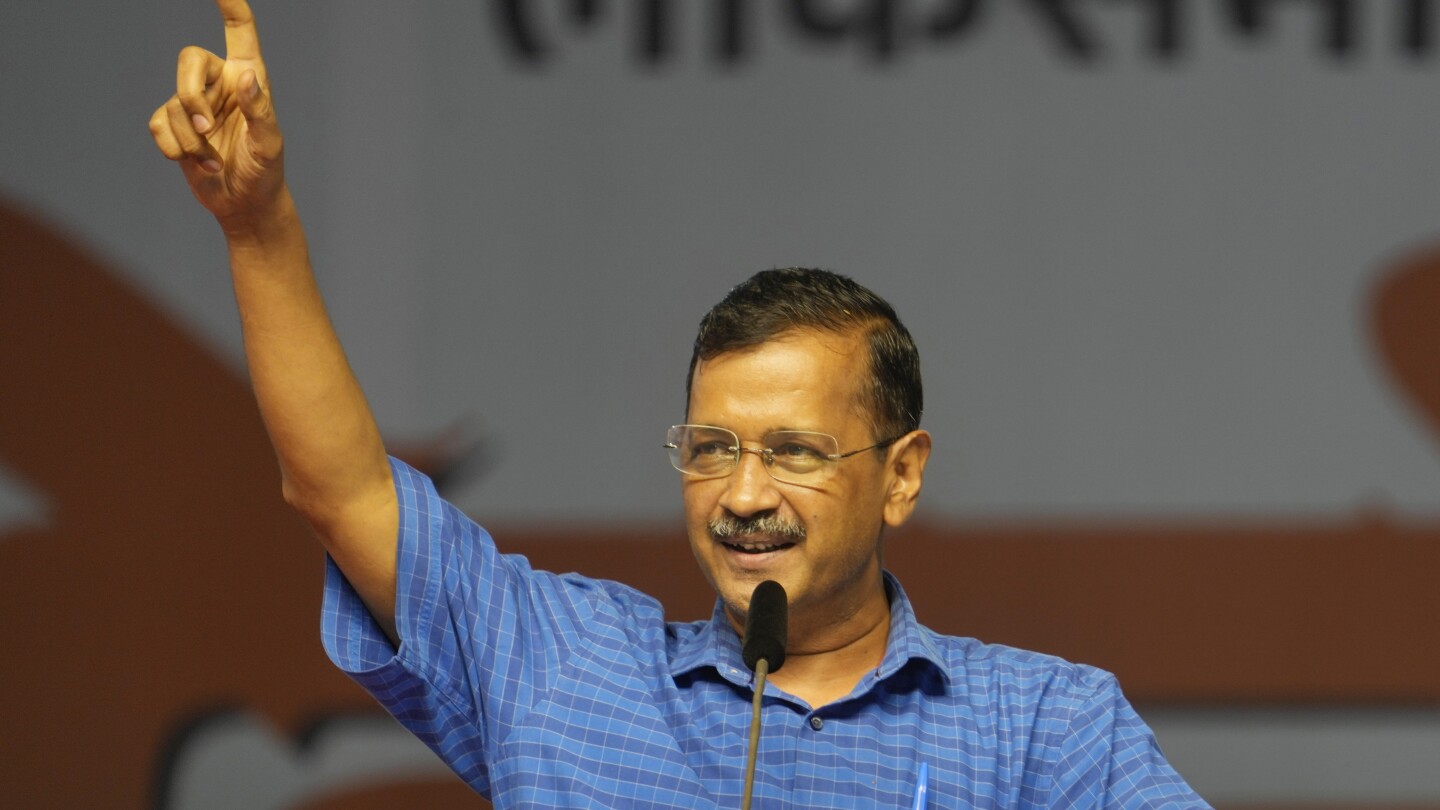NEW DELHI (AP) — India’s top court on Friday allowed the release on bail of Arvind Kejriwal, a prominent opposition leader and chief minister of New Delhi, who was arrested nearly six months ago ahead of national elections on charges of receiving bribes from a liquor distributor.
Supreme Court Justices Surya Kant and Ujjal Bhuyan granted him bail because his trial is expected to take time.
Kejriwal is the leader of the Aam Aadmi Party, or Common Man’s Party, which governs New Delhi. He is one of India’s most influential politicians of the past decade and a fierce critic of Prime Minister Narendra Modi.
Kejriwal was initially arrested in March, weeks before national elections. He denied the accusations and called them a political conspiracy.
His party is part of a broad alliance of opposition parties called INDIA which was the main challenger to Modi’s Hindu nationalist Bharatiya Janata Party in the elections, which concluded in June.
Kejriwal’s arrest was widely condemned by opposition parties as a move by Modi’s government against its opponents. They accused the government of misusing federal investigation agencies to harass and weaken its political opponents, and pointed to a series of raids, arrests and corruption investigations of key opposition figures in the months before the elections.
Kejriwal was released temporarily on bail in May to allow him to campaign in the elections before returning to jail on June 2. The Supreme Court granted him interim bail in July, but he was rearrested by another government agency, blocking his release. The court granted him bail in that case on Friday.
The government agencies accused Kejriwal’s party and ministers of accepting 1 billion rupees ($12 million) in bribes from a liquor distributor nearly two years ago in return for revising a liquor sales policy in New Delhi, allowing private companies greater profits.
Kejriwal’s release will boost his party, which faces new elections in New Delhi by February next year.
Kejriwal, a former civil servant, launched the Aam Aadmi Party in 2012. He promised to rid the Indian political system and governance of corruption and inefficiency.
The party’s symbol — a broom — and its promise to sweep the administration of graft struck a chord with New Delhi’s residents, fed up with runaway inflation and slow economic growth.

